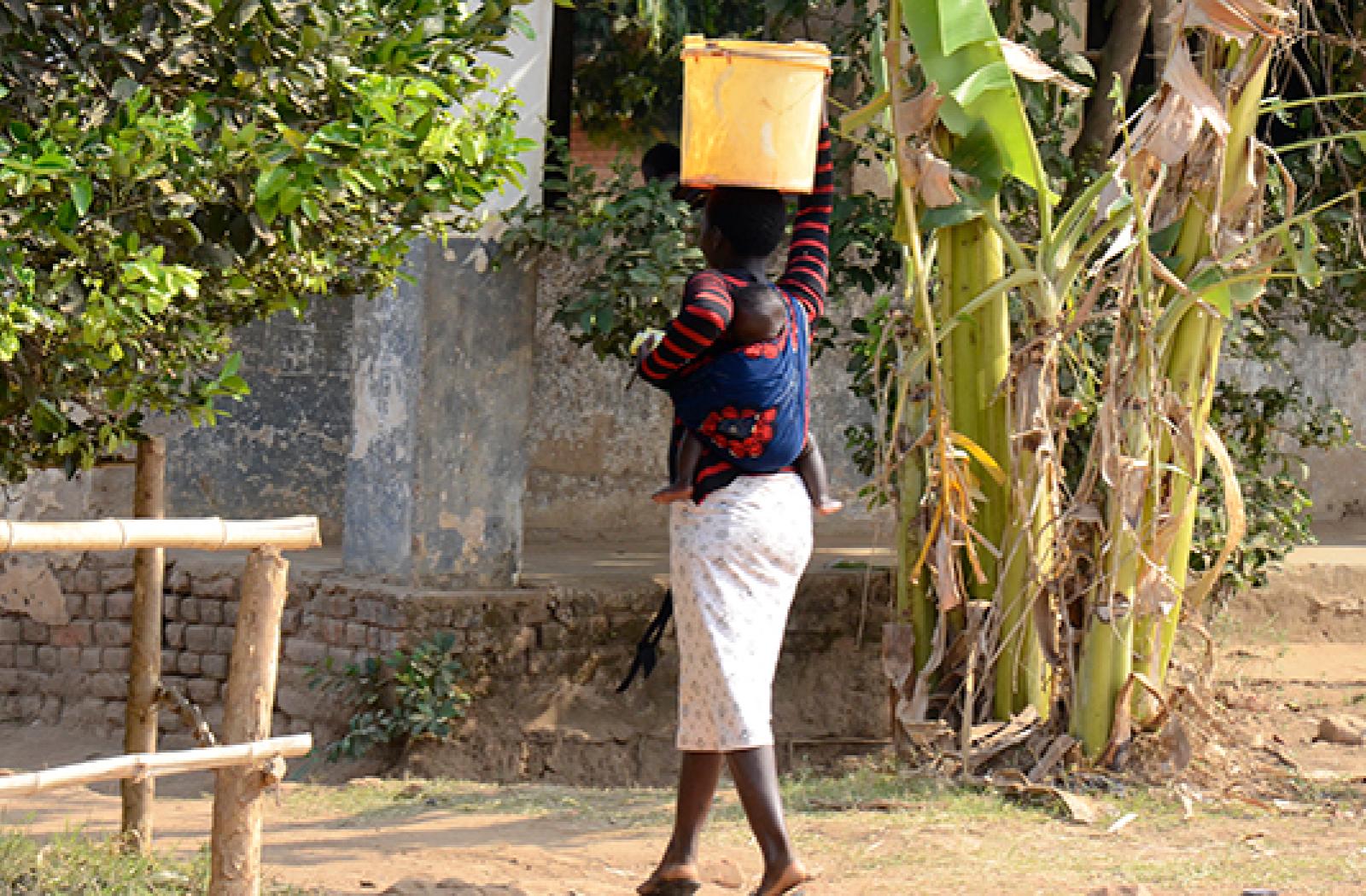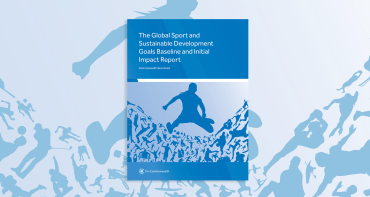Enala Ngulu lives in Karonga, in rural Malawi. She lost both her parents when she was only eight years old. At the age of 13 she was married to a man of 47. He had two other wives. At a time when she should have been in school, learning about the world and how to make a contribution as a young woman, she was forced to grapple with adult responsibilities such as a marriage, a household and child-bearing.

Blog by Karen McKenzie, Head of Human Rights, and Diana Copper, Human Rights Adviser, Commonwealth Secretariat
Enala Ngulu lives in Karonga, in rural Malawi. She lost both her parents when she was only eight years old. At the age of 13 she was married to a man of 47. He had two other wives. At a time when she should have been in school, learning about the world and how to make a contribution as a young woman, she was forced to grapple with adult responsibilities such as a marriage, a household and child-bearing.
By 15 Enala had her first child. She subsequently had five more daughters. As her girls progressed to school age, she returned to school herself and enrolled in primary school at 29 with six children. She was bullied by fellow students and teachers, facing stigmatisation because of her age. She successfully completed the primary school cycle and was admitted to secondary school. There was something else which she was determined about and that was to keep all six of her daughters in school and support the completion of their schooling without their being forced into a marriage, like she was.
It is a testimony to Enala’s resilience and determination that she continued her studies and completed the Malawi Schools Certificate of Education in 2012. She is now employed by the Foundation for Community Support Services (FOCUS) as a Field Officer in Karonga. Her desire is to further her education and complete a Gender Programme at Mzuzu University in Malawi.
Enala holds the very firm view that girls like her, married off at a young age, should not be forgotten. She says they deserve a second chance to shape their futures. Enala advocates for the reintegration of child brides into school and urges governments and school authorities to prevent the bullying of girls at schools, who are overcoming formidable hurdles to access their right to education.
Enala is one of the Commonwealth Champions against Child Marriage. She travelled to Malta in November 2015, her very first travel outside of Malawi, to share her inspiring story and experiences with delegates to the first Women’s Forum of the Commonwealth Heads of Government Meeting (CHOGM). There, she urged Commonwealth governments to commit not only to prevent and eliminate child marriage but also to support girls who are already married. This commitment is enshrined in the 2015 CHOGM Communique which is the outcome statement of this meeting.
According to a report published by Plan International UK and the Royal Commonwealth Society in 2015: “around 375 million women alive today were married or entered into union before their 18th birthday - this is over 16 per cent of the Commonwealth’s population, and amounts to 52 per cent of women aged over 18 years in the Commonwealth. At current prevalence, 43 per cent of women in the Commonwealth are married before they reach 18 years. This amounts to over 44 million 20-24 year-olds who were married as children. Approximately 8.8 million women in the Commonwealth are married as children annually.” That equates to 24,000 girls every day, or 17 girls every minute.
Since Commonwealth law ministers first engaged with the issue of Child Marriage at their meeting in 2011, we have moved forward in leaps and bounds. The Secretariat is now firmly a recognised contributor on the map of the international momentum to end child marriage in a generation.
Since heads mandated us to work on this issue in 2013 our strategy has been multi-pronged. We started by encouraging states to share best practice and experiences on tackling child marriage through the Commonwealth Roundtable on Early and Forced Marriage. We then mobilised National Human Rights Institutions (NHRIs) to use their powers and mandates to move from aspiration to action to end CEFM. The Kigali Declaration, signed in 2015 to enshrine this commitment, has been adopted in 20 countries and is being implemented across the Commonwealth.
For example, as a result of the Declaration, the NHRI of Cameroon has initiated a public education campaign on the impact of child marriage; the Ombudsman of Namibia established a Children’s desk officer to address complaints regarding children’s rights; the Human Rights Commission of Mozambique published a report on child marriages and teenage pregnancies in the country and the Northern Ireland Human Rights Commission made a submission to the Committee on the Rights of the Child, which resulted in a concluding observation to the UK and draft legislation to raise the age of marriage to 18.
With the Human Rights Commissions of Malawi and Ghana we’ve been pursuing another strand of our strategy, the mobilisation and empowerment of traditional leaders and their governance structures. In both countries we have identified core Chiefs as champions for national, regional, and international advocacy. In Malawi we have established a Commonwealth Chiefs’ Caucus as well as a network of young men and women including survivors who are at the forefront of local advocacy in rural districts (the Commonwealth Network against Child Marriages in Malawi). In Ghana we are supporting the development of a national memorandum of understanding between the NHRI and Chiefs.
We have also endeavoured to work through partnership, since the Commonwealth voice is stronger when it joins that of others. With the African Union, we delivered the first African Girl Summit in 2015 and in 2016 we delivered joint training for traditional leaders and parliamentarians on ending child marriage in Africa. We have also contributed to the evaluation of the AU Campaign to end child marriage.
We have contributed to reports of the Office of the High Commissioner for Human Rights to the Human Rights Council (UNHRC) and contributed Commonwealth expertise to a meeting of experts to inform the Council’s next steps. We have provided technical assistance to the South Asian Association for Regional Cooperation/ SAIEVAC on how to mobilise NHRIs using the Kigali Declaration as best practice.
Some of the next steps we will be pursuing include: further partnership work with the AU under its annual work-plan for the AU campaign to end child marriage 2017; partnership work with the OHCHR; technical assistance to the first national enquiry of the Ombudsman of Samoa on family violence, inclusive of violence against women and girls; mobilisation and capacity development of traditional leaders as champions against child marriage.
Goal 5 of the Sustainable Development Goals has given impetus to our work with member states, national institutions and regional and international organizations. The commitment from Commonwealth Heads of Government which has grown stronger over three successive meetings (2011, 2013 and 2015) has equally given focus to our efforts. But without the voices of survivors like Enala, informing our work and giving a human face to this rights violation, this will not have currency. As Enala put it, “I now know that no girl should be denied an education and that harmful practices including child marriage have no place in the modern world.”


